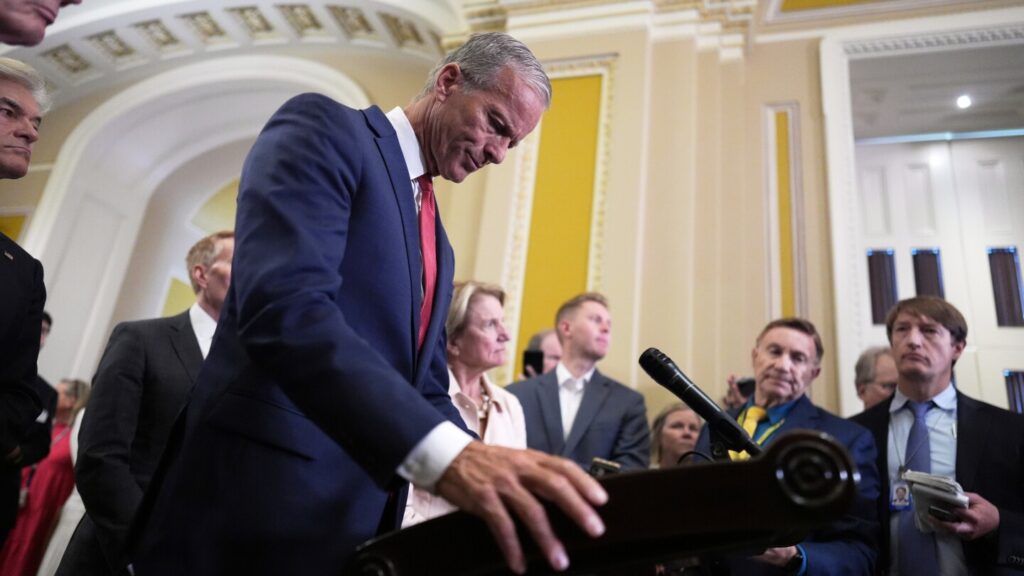
WASHINGTON – House and Senate Republicans are currently divided over key elements of a sweeping tax and spending bill, with differences threatening to delay President Donald Trump’s ambitious July 4th deadline for the legislation.
The two chambers are at odds over the size of deductions for state and local taxes, as well as provisions for health savings accounts and fees for electric vehicle owners. The House passed its version ahead of Memorial Day, while the Senate is preparing its own version.
Immediate Impact
The discord between the House and Senate Republicans centers on several key issues. The House version proposes lifting the state and local tax deduction cap to $40,000 for certain households, a move aimed at appeasing Republicans from high-tax states. Conversely, the Senate maintains the cap at $10,000.
The current SALT cap stands at $10,000, with the House proposing an increase to $40,000 for households earning less than $500,000.
Key Details Emerge
Tax Break for Families
Both chambers agree on increasing the child tax credit but differ in execution. The House bill raises the credit to $2,500 temporarily, while the Senate offers a permanent increase to $2,200, indexed for inflation starting next year.
Trump Campaign Promises
Reflecting Trump’s campaign pledges, both bills propose temporary deductions on tips, overtime, and Social Security benefits from 2025 to 2028. The House offers broader deductions compared to the Senate’s more restrictive approach.
The House allows a deduction on tips for workers traditionally receiving them, while the Senate limits it to $25,000 per taxpayer.
Industry Response
Business groups favor the Senate’s permanent tax breaks for equipment purchases and R&D expenses, aligning with the U.S. Chamber of Commerce’s priorities. Both versions aim to scale back clean energy credits, raising concerns among environmental advocates about potential job losses and increased energy costs.
By the Numbers
- Child tax credit: House – $2,500 (temporary); Senate – $2,200 (permanent)
- SALT cap: House – $40,000; Senate – $10,000
- Auto loan interest deduction: Up to $10,000 for U.S.-made vehicles
What Comes Next
Negotiations between the chambers are expected to intensify as they work to reconcile these differences. The Medicaid provision, which faces criticism from Sen. Josh Hawley and others, could become a major sticking point.
“This needs a lot of work. It’s really concerning,” said Sen. Josh Hawley, R-Mo. “Rural hospitals are going to be in bad shape.”
Background Context
The tax bill represents a continuation of the Republican agenda to reduce taxes and government spending. It follows previous efforts to dismantle parts of the Affordable Care Act and implement broad tax reforms.
Expert Analysis
Policy analysts suggest that the outcome of these negotiations will have long-term implications for both state economies and federal tax policy. The balancing act between cutting taxes and maintaining essential services will be crucial.
Regional Implications
The proposed changes to the SALT cap could significantly impact taxpayers in states like New York and California, where state and local taxes are high. The negotiation outcomes will be closely watched by residents and state officials alike.
Timeline of Events
- House passes its version before Memorial Day
- Senate prepares its version following the House’s passage
- President Trump aims for a July 4th deadline for final legislation
As the legislative process unfolds, stakeholders across the political and economic spectrum will be keenly observing the developments, anticipating how the final bill will shape the nation’s fiscal landscape.






